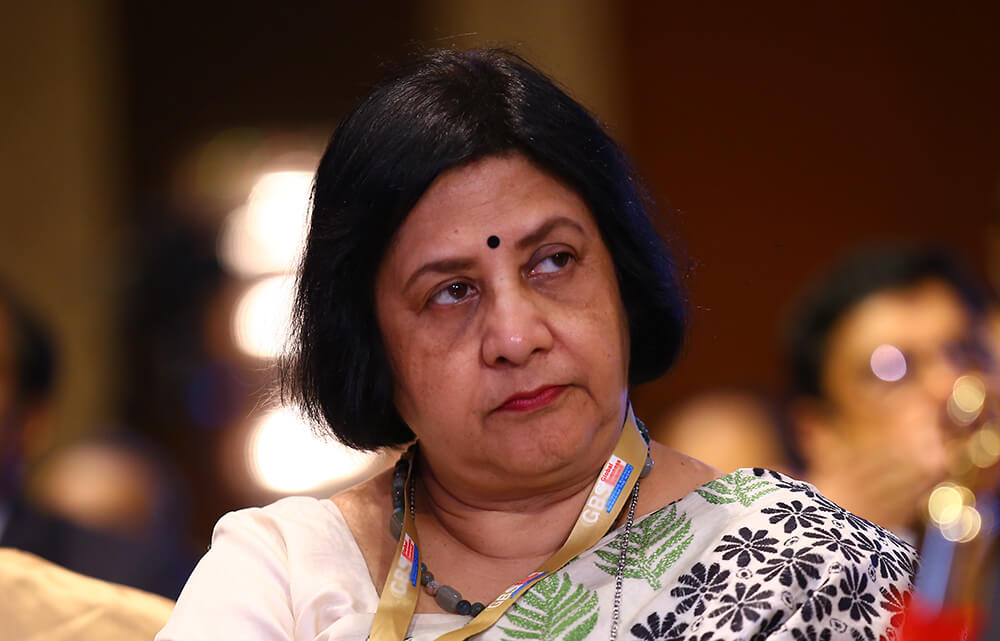The CEO and chairman of Salesforce underlines the significance of technology, adding that regardless of whether you work in any sector, we must recognise that technology is the foundation for all industries
Arundhati Bhattacharya made a crossover to information technology after a successful career in India’s financial sector spanning over 40 years and working across several jobs and numerous national and international locations. She is currently the CEO and chairperson of Salesforce.
In an exclusive interview with ET Insights, Arundhati Bhattacharya talks about the wave of digital transformation, why she joined the IT sector, , the significance of adopting technology, and much more.
The entire industrial spectrum is being shaped by digital transformation. How do you think the Indian corporate landscape has changed because of digitalisation over the past decade?
I believe that the Indian business sector, particularly the legacy industry, is a bit lagging. And, if you look at the very large core-sector industries, many of them are now PSUs (Public Sector Undertaking). I believe they have a significant amount of digital initiative, but there are fewer transformational solutions than point solutions. We now live in an era where businesses can digitally empower nearly every department. Furthermore, they can truly leverage one another; the siloed approach is no longer appropriate.
While we have a strong grasp on structured data, we lack a comparable grasp on unstructured data and the capacity to utilise it to advance your business. Today, the digital transformations that we perform for businesses enable you to obtain data from anywhere, including legacy systems, unstructured data, the ecosystem, and the transactions that people are conducting with you, and they enable you to put it all together so that the customer experience, which is the only thing that differentiates you from your competitors, can be extremely superior and hyper-personalised.
Previously, these concepts were more theory than fact. Today, it’s a fact that they can be done, and they can be done in real time. You don’t have to create a data lake, send a query, and wait three days for the answer. That can happen in real time, so I believe the industry needs to pick up the pace. I believe India has a tremendous opportunity to leapfrog, and we should take advantage of it.
After a very successful career in banking, did you see yourself getting into a role in the IT sector? Any specific reason for your move?
I think this leap from finance to IT has been very interesting because today it is something that is core to everything we do. I waited five to six months before taking up the offer. I recall that at my chairman’s interview, I was asked what my initiatives would be if I were to be appointed chairman. I had listed six projects and said that technology would be the backbone of all of them. So, I didn’t list technology separately because it is so crucial to all of this.
Risk management is impossible without technology. You can’t control costs properly without technology, you can’t manage performance well without technology, and you can’t give customers a better experience without technology. Regardless of whether you work in the business sector, the social sector, the academic sector, or the healthcare sector, I believe it is essential for us to recognise that technology is the foundation for all these fields. It gives you a unique experience, which is what people want these days. They don’t want to be seen as part of a big group; they want to be seen as individuals.
Thus, I believe that technology is something that must be internalise, and that all businesses must be keenly aware that it constitutes a sizable portion of what they do. It gives you a unique experience, which individuals need these days, and they want to be seen as individuals, not as part of a big group. And therefore, I think technology is something that we really need to internalise, and all companies need to be very aware that this is a very big part of what we do.
Technology is developing at a lightning-fast rate for businesses, and so is the rate at which new ideas are being developed. Do you believe that the evolution of business leadership has paralleled technical advancements?
Even while I was in banking, I was fascinated by technology. The fact that I am naturally curious meant that I would often wonder how to solve a problem once I encountered it. I believe that if leaders are curious, they will realise that these solutions and technologies are available on the market not only for every leader who has actually excelled, but also because that leader has been a visionary. Let me explain what I mean by visionary. A visionary is someone who has few data points yet can create a complete picture from those data points. Now the future provides these few data points. It does not provide a complete image, but you must paint a picture of the future. If you are successful, your business will be prepared for the future.
Hence, I would say that a leadership that has the ability to look at a few data points and create a picture of the future would have a great knowledge of the role that technology plays and would be able to future-proof their companies, make them sustainable, and make their companies leaders because they will be pushing the company to go beyond the immediate issue. You must therefore keep one eye on the current issue and one eye on the future.



